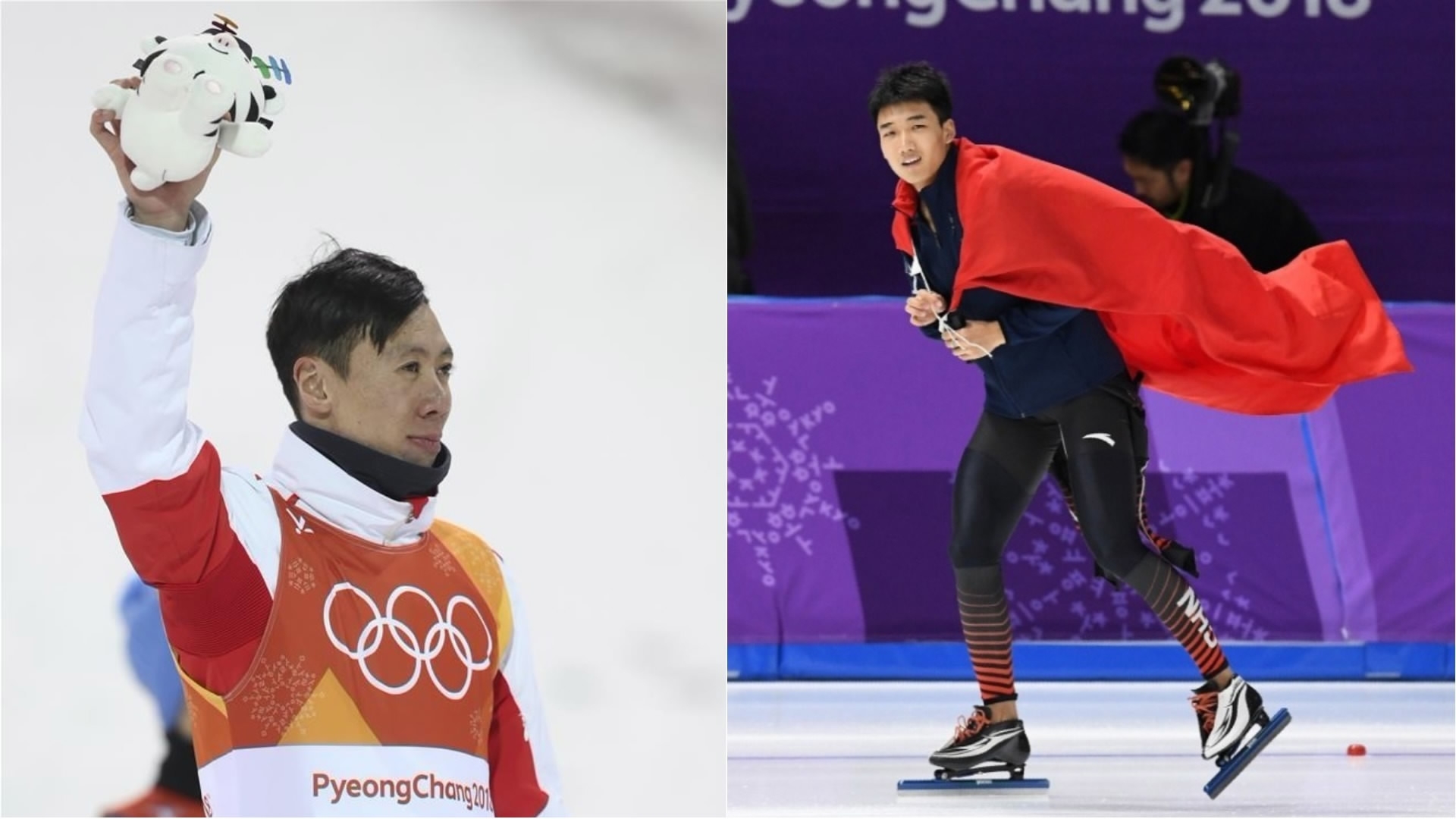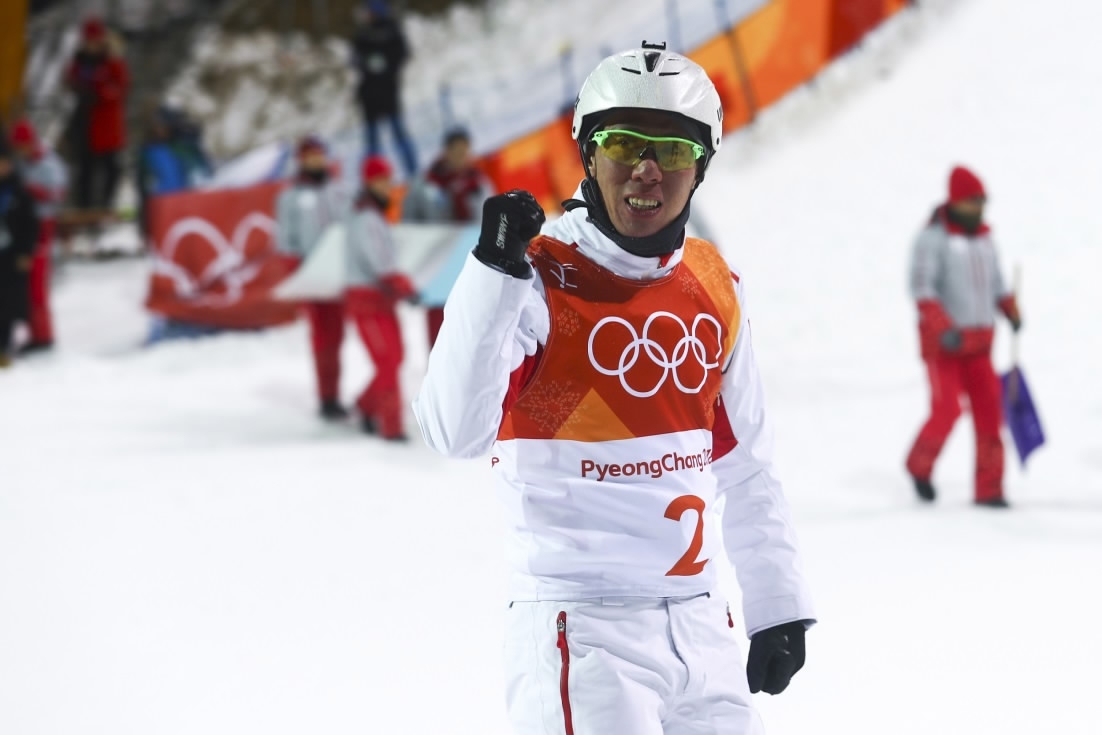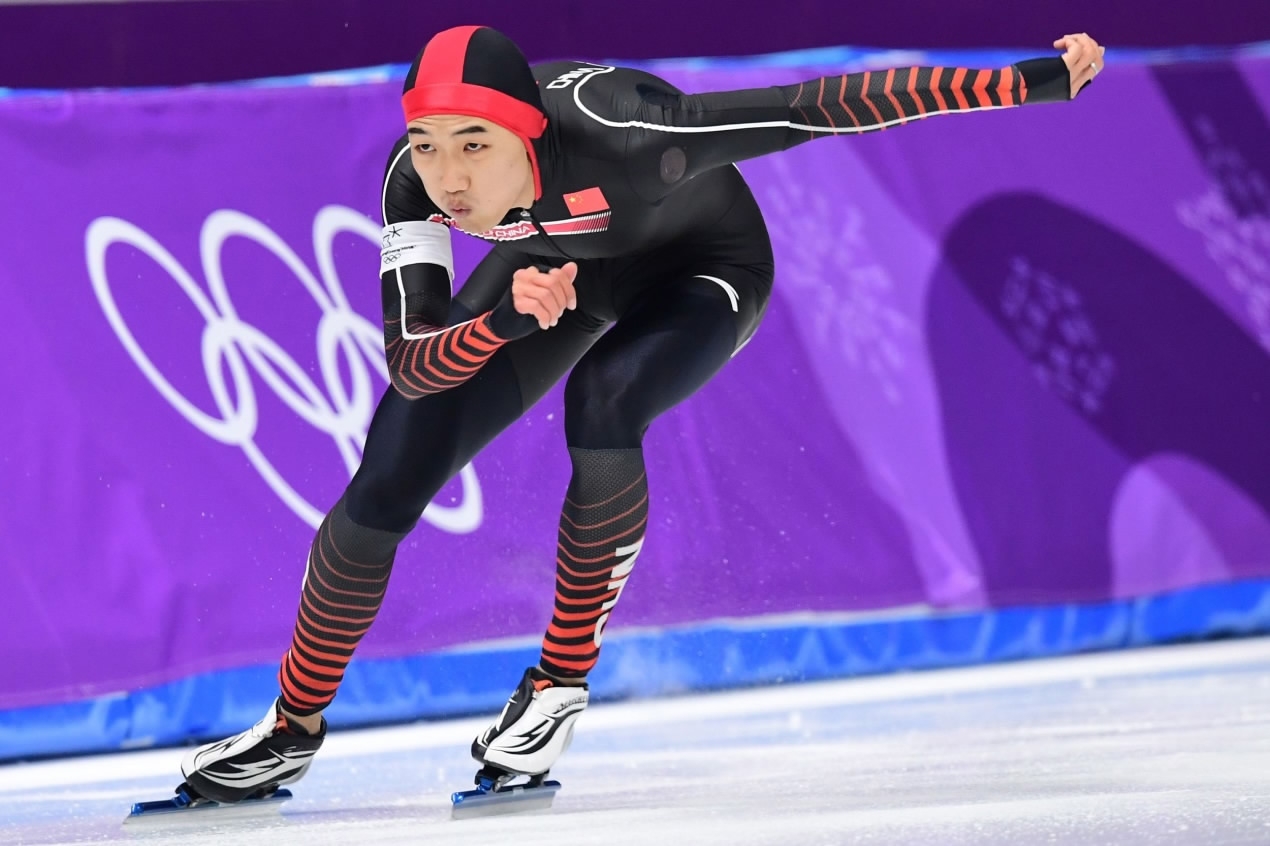
Sports
14:37, 20-Feb-2018
Reporter’s Diary: Day 9 of PyeongChang Winter Olympics
By Greg Laffradi

In the evening of Sunday, day nine of the PyeongChang Winter Olympic Games, China was still in search of its first gold medal in South Korea and the hopes of the nation turned to the Phoenix Snow Park where the final of the men’s freestyle skiing aerials would take place.
Twelve athletes had reached this stage and with three, or a quarter of the contestants, representing China. Each of the trio was looking to duplicate their compatriot Han Xiaopeng’s feat from the 2006 Turin Olympics of capturing the gold medal.
The triumvirate was made up of Liu Zhongqing who won bronze in this event at the 2010 Vancouver Games, Qi Guangpu who finished fourth at the previous Olympics, and Jia Zongyang the bronze medalist from 2014 in Sochi. The final consists of three rounds with the athlete with the lowest score eliminated after each round until only six remain to fight for a spot on the podium. The scores are not cumulative, so after each round, the aerialists start fresh with another chance to outdo the others.

Jia Zongyang of China celebrates after his jump during men's aerials final of freestyle skiing at the 2018 PyeongChang Winter Olympic Games, Feb. 18, 2018. /VCG Photo
Jia Zongyang of China celebrates after his jump during men's aerials final of freestyle skiing at the 2018 PyeongChang Winter Olympic Games, Feb. 18, 2018. /VCG Photo
Qi had the best jump of the first round to safely move on, while Liu and Jia both struggled slightly and finished eighth and ninth respectively, but still good enough to advance. In the second round, Jia made up for his earlier wobble by posting the top score of the nine athletes remaining, but Qi and Liu failed to qualify.
His first place result in the second stage meant Jia would jump last in the third and final round that would determine who went home with the gold. And the 26-year-old Jia pulled off an excellent back full-full double full jump with only a slight wobble on the landing. The anxious wait then began for his score to be shown. Jia received 128.05 points – a great result but just 0.46 points less than Oleksandr Abramenko of Ukraine so it was silver for the Fushan native while Abramenko claimed the gold by a whisker.
After the event, Jia said he was satisfied with his performance that earned him his second Olympic medal and China’s fifth silver at these Games which was all the more remarkable considering the injuries he has had to overcome. After the 2014 Sochi Olympics, Jia severely fractured his left leg which left him for a surgery and months of rehabilitation, but he persevered and was duly rewarded this night. And in four years’ time, Jia hopes to represent China once again, this time on home soil, where he will aim for the one medal missing from his collection at the 2022 Beijing Olympics.
Monday night found us at the Gangneung Oval for speed skating and the men’s 500 meter final. Although China excels at short track speed skating, it has not found as much success in the long track version with no Chinese having ever made the podium. But this time three Chinese -Xie Jiaxuan, Yang Tao, and Gao Tingyu were looking to bring a change. Xie was in the fourth pair of skaters and posted a time of 35.45 seconds for an overall 31st place. Yang in the fifth pair finished in 35.41 seconds for the 27th position.

China's Gao Tingyu competes in the men's 500m speed skating during the PyeongChang 2018 Winter Olympic Games. /VCG Photo
China's Gao Tingyu competes in the men's 500m speed skating during the PyeongChang 2018 Winter Olympic Games. /VCG Photo
Due to his strong heats performance, Gao was in the 12th of the 18 pairs in the final as the competitors were put into outing with slowest to fastest heats results. The 20-year-old got off to a good start and continued to pick up speed; by the time he rounded the final bend, everyone in the stadium knew it was going to be a great result. He crossed the finish line in 34.65 seconds, the fastest time of the night so far.
Now came the tough part as Gao had to wait and watch as the six other pairs tried to best his mark. South Korea’s Cha Min Kyu managed to outdo Gao with a time of 34.42 seconds, a new Olympic Games record. But the skater from the host nation was then be beaten by the slimmest of margins as Havard Lorentzen of Norway pipped him by 0.01 seconds to claim gold.
The bronze went to Gao, a fantastic feat in his Olympics debut and the first medal for any Chinese man in speed skating. A breakthrough for his country and at just 20 years old, a great sign for the future of the young speedster that gave China it’s second bronze and seventh medal overall at the PyeongChang Winter Olympics.

SITEMAP
Copyright © 2018 CGTN. Beijing ICP prepared NO.16065310-3
Copyright © 2018 CGTN. Beijing ICP prepared NO.16065310-3